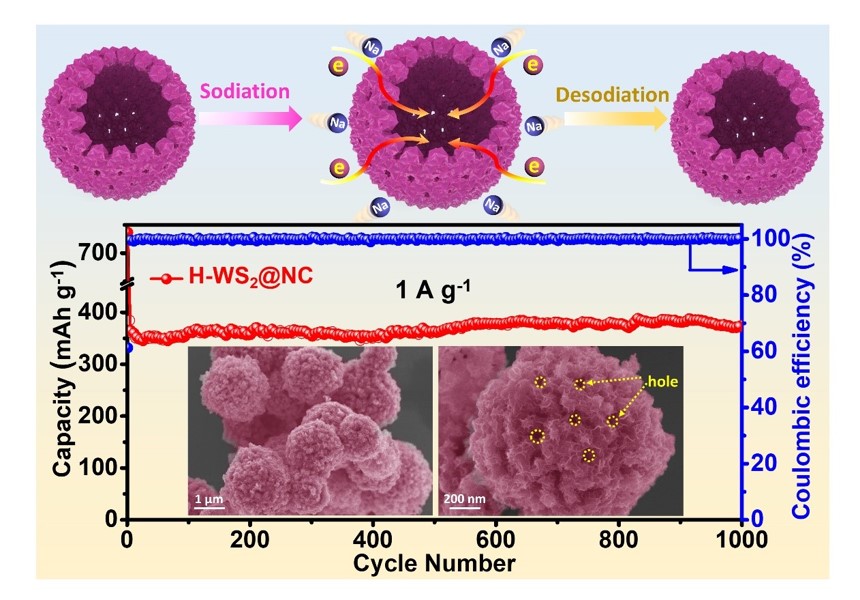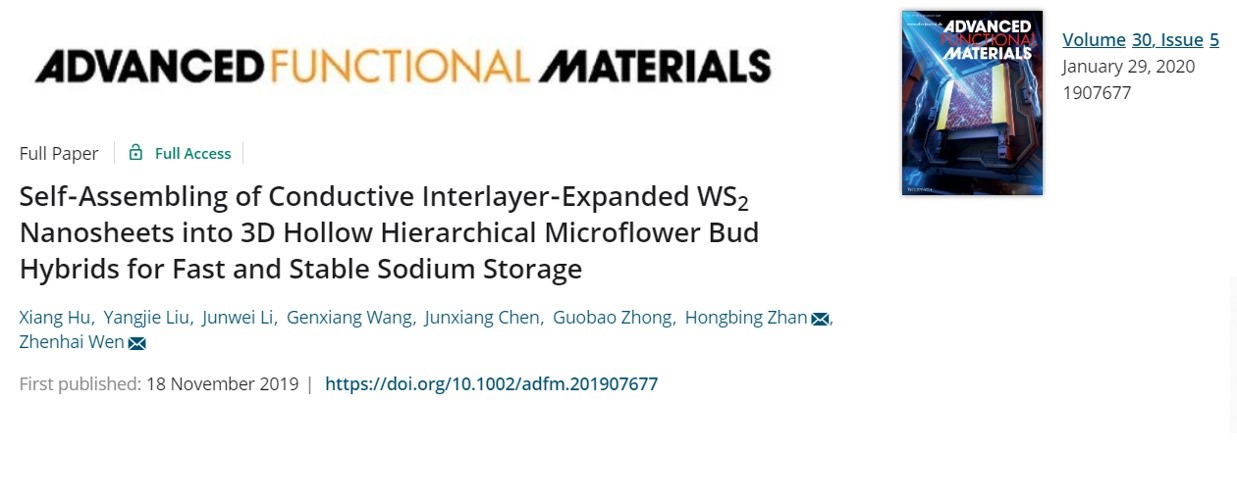Recently, Prof. Hongbing Zhan group at College of Materials Science and Engineering of Fuzhou University published a research article entitled “Self-Assembling of Conductive Interlayer-Expanded WS2 Nanosheets into 3D Hollow Hierarchical Microflower Bud Hybrids for Fast and Stable Sodium Storage” in Advanced Functional Materials.
Transition-metal dichalcogenides have emerged as promising anodes of sodium ion batteries (SIBs). Their practical SIB application calls for an easy-to-handle synthetic technique capable of fabricating favorable properties with high conductivity and stable structure. In this work, a solvothermal strategy for bottom-up self-assembling of nanoflowers building block, i.e., conductive interlayer-expanded 2D WS2 nanosheets thanks to in-situ interlayers modification by nitrogen-doped carbon matrix, into three-dimensional (3D) hollow microflower bud like hybrids (H-WS2@NC). The 3D nano/micro hierarchical hollow structures are constructed by conductive interlayer-expanded WS2 nanosheets building blocks, providing abundant channels facilitating mass transport/electrons transfer, robust protection layer for avoid the direct contact between WS2 nanosheets and electrolyte, sufficient inner space for accommodating volume variation, and decreased ions diffusion energy barrier for accelerating electrochemical kinetics, as revealed by the density functional theory calculations. As such, the 3D H-WS2@NC hybrids exhibit extraordinary structural stability with high reversible capacity, outstanding cycling stability, and rate capability as anode material for half/full SIBs.


Link: https://onlinelibrary.wiley.com/doi/full/10.1002/adfm.201907677.